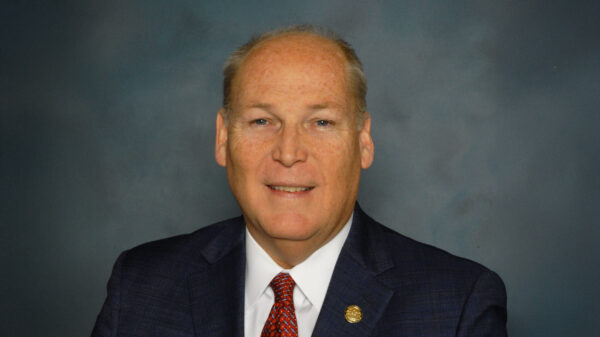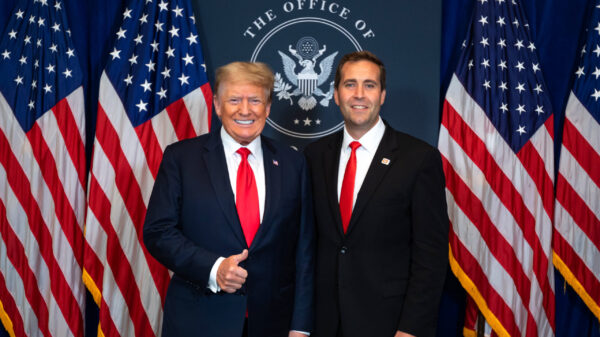There’s a kind of legal corruption that doesn’t whisper behind closed doors—it smiles for the camera, files the paperwork and insists everything is above board. It’s the kind that cloaks itself in the letter of the law while gutting its spirit. And it’s alive and well in Alabama politics.
State Auditor Andrew Sorrell has built his brand on being a fiscal conservative and a defender of integrity. But what’s come to light over the past few weeks reveals a pattern of behavior that calls that image into serious question.
In January, Sorrell quietly formed a political consulting firm—Stable Revolution LLC—registered to his home address. Almost immediately, the firm began collecting massive payments from Allen Long’s campaign for the State Board of Education. Not modest reimbursements. Not grassroots support work. But $207,050 for advertising, $17,615 for consulting, and a post-election $12,000 labeled as a refund—adding up to $236,661.59 in just a few months.
Interestingly, all the advertising payments were in round numbers. Sorrell has said he didn’t take a cut from any placements and received only a “win bonus” from Long.
At the same time, a political action committee chaired by Sorrell—the Alabama Christian Citizens PAC—made a $29,000 loan to First Liberty Building & Loan, a Georgia-based firm now at the center of a $140 million Ponzi scheme, according to the U.S. Securities and Exchange Commission. That same PAC later reported receiving interest payments from the company, even as federal investigators say the firm was already defrauding investors.
While there is no public record showing that Sorrell personally profited from those payments, he directed the PAC’s financial decisions—including giving Long’s campaign $50,000 in early February and receiving a $70,000 payment from Long’s campaign on the same day. Also the fact that political funds under his control were used to “invest” in a fraudulent enterprise raises serious questions about judgment, accountability, and whether any portion of the returns ultimately benefited his political interests.
Sorrell later said the PAC was making an “investment,” and that he, too, was a victim. Maybe so. But that doesn’t change the fact that a sitting statewide official was running a private consulting business and funneling political funds into a now-disgraced financial company tied to massive investor losses. Where is the line between being duped and being complicit? Is it in the eye of the beholder, like so many things in politics?
Allen Long’s campaign, too, took in large donations from entities linked to that same Georgia network—then turned around and spent heavily with Sorrell’s company. The circular nature of these transactions may not be illegal under Alabama law, but they should be deeply alarming to anyone who cares about honest government.
Now, Andrew Sorrell wants a promotion. He’s running to become Alabama’s next Secretary of State—the very job that would put him in charge of overseeing elections, campaign finance disclosures, PAC activity, and enforcement of the same laws he’s already pushed to the edge. It’s not just a higher office. It is a position of regulatory authority over the very system his own political dealings have tested. And that ought to give every voter in Alabama serious pause.
Sorrell has framed his campaign for Secretary of State as a moral mission. He’s even challenged his primary opponent—Caroleene Dobson—to sign a “Clean Campaign Pledge,” invoking Ronald Reagan’s 11th Commandment: “Thou shalt not speak ill of a fellow Republican.” He says the chief elections officer must “set a moral example.” But it’s hard to reconcile that appeal to virtue with a campaign operation that funneled over $230,000 through a firm he owns, directed PAC funds into a failed Georgia lender, and blurred the lines between public service and personal profit.
That ethical tension became even more visible when APR’s Josh Moon first reported that Sorrell’s annual Statement of Economic Interests failed to include Stable Revolution LLC—the consulting firm he formed, owns and profits from. When asked, Sorrell called the omission a mistake.
Sorrell told Moon he’d update his SOEI—and he did. In his amended filing, he not only added Stable Revolution LLC, but also listed three additional businesses: Liberty Acquisition LLC, Riverside Realty, and Infinity Books LLC. Combined, these additions accounted for an extra $71,000 to $259,996 in reported income. That’s not a minor omission. That’s a sizable amount of financial activity left off the initial filing by someone who wants to oversee campaign finance disclosures as Secretary of State. Whether due to negligence or convenience, such a lapse raises serious concerns about transparency, accuracy and attention to detail—especially from someone seeking to manage the state’s election and campaign systems.
As for revealing his “win bonus,” Sorrell amended his SOEI to show income from Stable Revolution LLC in the $10,000–$49,999 range. Not a bad haul for placing ads in a down-ballot race for a longtime friend. But it also underscores how Alabama’s disclosure laws—based on vague income ranges and delayed filings—do more to obscure than to inform. The public can’t see when the money was earned, how it was earned, or how much of it flowed through political connections. That’s not transparency. It’s a smokescreen written into law.
Why would any donor pour so much money into a down-ballot race for the State Board of Education—a position that typically draws little public attention, limited media coverage, and historically modest fundraising? It’s an eye-popping figure for a race that doesn’t carry executive authority, legislative power or broad name recognition. Most school board candidates win with grassroots efforts, a handful of endorsements, and a modest media buy—not nearly $300,000. So what exactly justified such an extraordinary sum?
If the state is serious about addressing the loopholes in the Fair Campaign Practices Act, then the Alabama Ethics Commission should initiate a review of Auditor Andrew Sorrell’s dual roles—as a public official and as the operator of a consulting firm profiting from political campaigns. The commission should examine the flow of funds between Sorrell’s LLC, his PAC, and Allen Long’s campaign. It should also scrutinize the decision to loan political money to a private Georgia company now at the center of a federal securities fraud case. If these actions fall within the bounds of current law, then the law itself is failing. This isn’t to say a crime has occurred, but rather to ask what can be learned—and how this moment might guide the Legislature to close the gaps before they’re exploited again.
Alabama’s campaign finance statutes are outdated, vague and stunningly permissive. The system allows public officials to run private firms that rake in campaign cash. It lets PACs act like lenders to for-profit businesses. It requires little more than dollar amounts and filing deadlines, with no public record of who did what, when or why.
Andrew Sorrell is ready to be the state’s chief elections officer—because who better to guard the henhouse than the fox who already drew the floor plan?
The people of this state deserve better. They deserve honesty. They deserve laws that mean something. And they deserve leaders who remember that public office is a duty—not a business plan.



















































